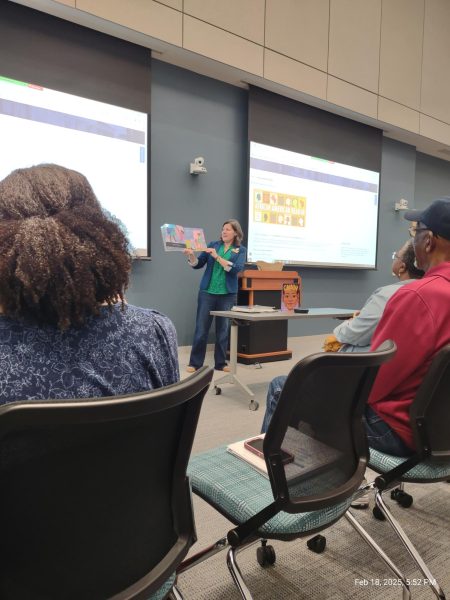Study abroad teaches skills beyond the classroom
The teachers observed the kids from the shore, but for the most part, the kids played on their own. This field trip to the beach really opened the eyes of an American student teacher.
“In America, if we take the kids anywhere outside of the school grounds you have to have permission slips, first aid kits, millions of chaperones and instructions for each child,” Erika Murray said. “In Belize, the parents had to sign a paper whether or not the kids could swim, but other than that, we just let them go.”
Murray, a senior North Carolina Teaching Fellow at UNC Wilmington, is an education major with a minor in English as a second language.
Education majors typically do 15 weeks of student teaching in the NC public schools. Through the International Field Experience Program at UNCW, the Watson College of Education and the Office of International Programs at UNCW, Murray is getting the opportunity to supplement this experience by doing part of her student teaching in San Pedro, Belize.
“For three weeks we are teaching in local schools on the island, officially teaching three full lessons,” Murray said. “I am in a kindergarten class at Isla Bonita elementary school.”
According to Denise Dipuccio, assistant provost to the Office of International Programs, more and more students are getting the opportunity to study abroad.
“In the last academic year [2011-2012], 821 students studied abroad through UNCW,” Dipuccio said.
Skills developed while studying abroad help lead students towards better careers once they return to the states. Dipuccio referenced two sets of skills developed during study abroad.
“First, there are discipline-specific skills, where, for instance, a nursing major works at a hospital in El Salvador,” Dipuccio said. “Then there are what I term as ‘soft skills,’ where students learn to become independent decision makers, culturally aware, flexible and adaptable.”
Year after year, regardless of job market conditions, employers have a similar wish list for candidates’ skills and qualities. Under “initiative,” one of UNCW’s seven main skills, “study abroad [and the ability to] interact with other cultures,” has proven valuable in the ever-globalizing world.
Amy Rottmann, director of the North Carolina Teaching Fellows Program at UNCW, agreed with the second skill subset.
“When studying abroad, you get to experience something outside yourself,” Rottmann said. “The ability of a job candidate to understand different cultures is a key point of interest to a potential employer.”
“Having this study abroad opportunity has opened up so many doors,” Murray said. “I am now officially licensed to teach in Belize for two years.”
The Institute for International Education of Students surveyed alumni from its study abroad programs in a study published in the Bureau of Labor Statistics. According to those survey results, “students were more likely to enter an international career if they had completed an internship while abroad.”
UNCW junior Adam Laughter, an international studies major, is taking full advantage of this belief by going to Belize this past spring break, Costa Rica this summer and the Dominican Republic next fall semester.
“I hope to one day work for a non-profit or international company,” Laughter said. “I see study abroad as a definite requirement for my future.”
Murray is not in a true international field, but still recognizes the benefits of having this experience.
“By traveling to different areas of the world, I am broadening my outlook on life and the educational system,” said Murray. “I get to see how schools, teachers and students work in other areas of the world.”
The IES survey continued by saying, “studying in a non-English-speaking country and developing local professional contacts also increased their (alumnis’) chances of finding international work in the future.”
As an ESL minor, Murray found this experience to be vital.
“I wanted to have an experience in which I put myself in my future students’ shoes,” Murray said. “I feel as though I am getting a very small taste of what my students might be feeling, trying to live in a different culture, with different languages and still trying to succeed in school.”
Laughter mimics Murray’s thoughts when it comes to language development.
“An obvious benefit of study abroad for me is the intensive language opportunity,” Laughter said. “Being submersed in a foreign language is the only way to speak it fluently.”
The end goal of a college graduate is to find a job and studying abroad can help those chances. Dipuccio and Laughter both see it as an asset in the job market.
“If you have two candidates vying for a position and they are of equal credentials, the one with study abroad on their resume is more likely to get the position,” Dipuccio said.
Laughter touches on the aspect of globalization.
“Whether we realize it or not, our world has increasingly become more globalized,” Laughter said. “When graduation comes and we are thrown to the real world of job search and bills, it is the smallest details that will allow you to stand out to employers.”
Thom Rakes, director of UNCW’s career center, provides a caveat.
“Employers are not interested in students just because they studied abroad, but because of the skills they may have developed through that experience,” Rakes said.












